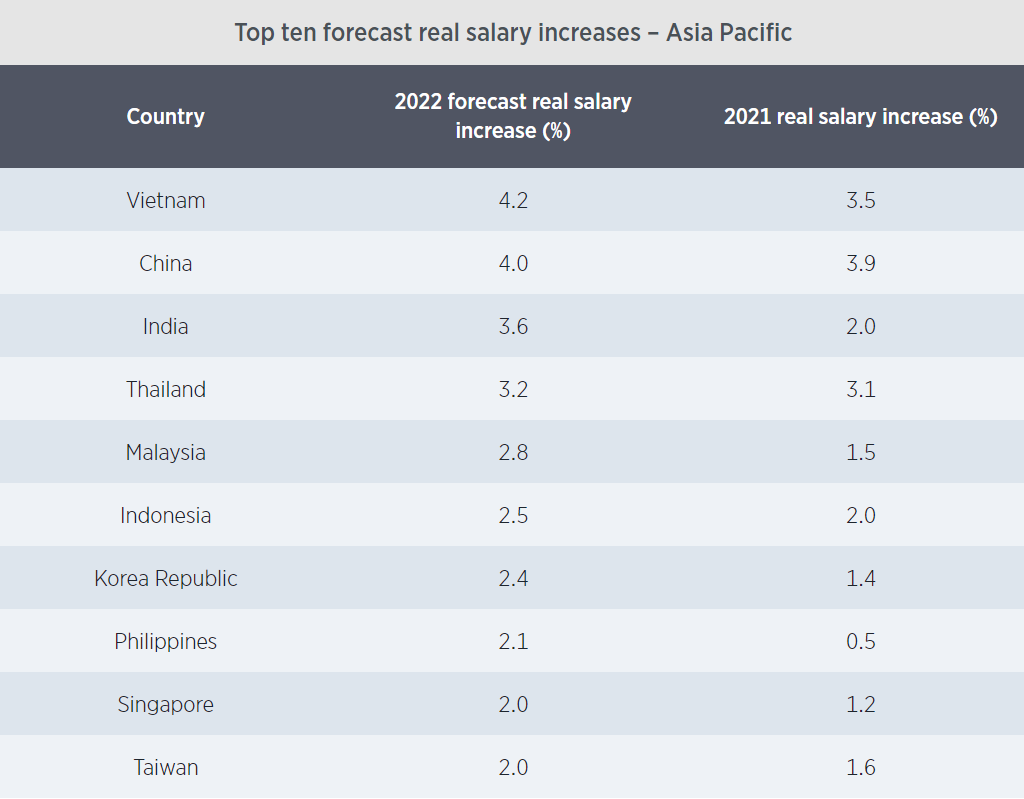Life has been an uphill struggle for many ever since the coronavirus emerged last year.
Workers have faced job losses and cuts in income as businesses have been doing everything they can to mitigate the heavy financial impact that the pandemic has had on them.
Good news has been hard to come by since then, what with border closures and movement restrictions being repeatedly eased and re-imposed around the world.
There’s now some good news for working residents in Singapore, however:
Salaries in S’pore Expected to Increase by 3.5% in 2022
Employees based in Singapore are expected to see their salaries go up by 3.5% next year, according to a report by research data firm ECA International.
The 3.5% bump in salary stated in ECA’s Salary Trends Report is significantly higher than the 2.8% this year.
After factoring in the forecasted 1.5% inflation, this leaves workers in Singapore with an average salary increase of 2.0%, up from 1.2% this year.
“Similarly, we are forecasting that just 6.0% of companies based in Singapore will implement a pay freeze in 2022, significantly down from the 22.0% that put in a pay freeze this year,” said Lee Quane, ECA’s Regional Director of Asia

“This all points to a much improved outlook for workers in Singapore as the economy gradually recovers from Covid related restrictions and uncertainty.”
Southeast Asian nations are expected to be amongst the top countries in the Asia Pacific to see highest salary increases next year, with Vietnam coming in first globally.

What is the Average Monthly Salary in Singapore?
According to the Ministry of Manpower (MOM), the median gross monthly income for full-time employees is $4,000, excluding employer CPF.
The median Singaporean household income is $7,744, while the median household income from work per household member is at $2,463.
Raising Wages For Lower-Wage Workers
As Prime Minister Lee Hsien Loong said in his National Day Rally speech this year, the government is taking steps to ensure that the wages are raised for lower-wage workers.
For one, companies employing foreign workers will be required to pay all their local employees a monthly salary of at least $1,400.
The progressive wage model, which Senior Minister Tharman Shanmugaratnam once dubbed “minimum wage plus”, will be extended to more sectors. The government will also be increasing its annual spending on the Workfare Income Supplement to $1.1 billion in two years.
These measures will ensure that the lower-wage workers – the bottom 20% of income earners – will start to earn a higher wage within the next two years.




